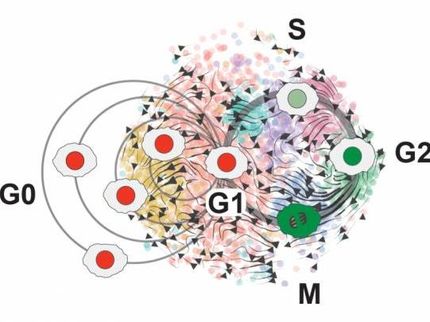Energy sensor as potential target for cancer drugs identified
Advertisement
An international research team formed by a University of Cincinnati (UC) cancer researcher has shown for the first time that a specific enzyme is responsible for sensing the available supply of GTP, an energy source that fuels the uncontrolled growth of cancer cells. The research underscores the enzyme's potential to become a therapeutic target for future cancer drugs.
Atsuo Sasaki, PhD, assistant professor in the Division of Hematology Oncology at the UC College of Medicine and fellow researchers showed that the enzyme PI5P4Kβ (phosphatidylinositol-5-phosphate 4-kinase-β) acts like the arrow on a fuel gauge. The enzyme senses and communicates (signals), via a second messenger, the amount of GTP fuel that is available to a cell at any given time. Until now, the molecular identity of a GTP sensor has remained unknown.
"Energy sensing is vital to the successful proliferation of cancer cells," he says. "A large amount of GTP is required in rapidly dividing cells, and cells need to know that the fuel is available to them. If we can interfere with the ability of PI5P4Kβ to sense fuel availability and communicate that information, we may be able to slow or halt the growth of cancers, including the aggressive brain cancer glioblastoma multiforme and cancers that have metastasized to the brain."
Sasaki is the first to address PI5P4Kβ as a molecular sensor of GTP concentration. Initially, he and his team faced skepticism regarding the existence of GTP energy-sensing; however, with a pilot grant funded by Cincinnati's Walk Ahead for a Brain Tumor Cure and other local sources, the researchers were able to pursue their high-risk research.
GTP--guanosine triphosphate--is one of two energy molecules used by cells. The other is ATP (adenosine triphosphate). ATP handles the bulk of a cell's energy requirements, while GTP is required for protein synthesis and is a signaling molecule that helps direct processes within the cell. When GTP levels are increased and utilized as fuel by rampaging cancer cells, its ability to perform its primary goals is compromised.
Sasaki and his team identified PI5P4Kβ as a GTP sensor by demonstrating, in a laboratory setting, its ability to bind to GTP and by demonstrating, at the atomic level by X-ray structural analysis, the molecular mechanism by which it recognizes GTP. They then designed PI5P4Kβ mutant cells that were unable to sense GTP concentration and, as a result, impaired the ability of PI5P4Kβ to promote tumor growth.
His next step is to use both pharmacological and molecular approaches that target PI5P4Kβ in a cell culture and in animal tumor models.
"By unveiling PI5P4Kβ's role as a GTP sensor, we now have a potential new therapeutic target for patients," Sasaki says. "If we can find drugs that stop PI5P4Kβ from acting as the fuel indicator, we could get these aggressive and tragic cancers into energy-depleted status."
Original publication
Kazutaka Sumita, Yu-Hua Lo, Koh Takeuchi, Miki Senda, Satoshi Kofuji, Yoshiki Ikeda, Jumpei Terakawa, Mika Sasaki, Hirofumi Yoshino, Nazanin Majd, Yuxiang Zheng, Emily Rose Kahoud, Takehiro Yokota, Brooke M. Emerling, John M. Asara, Tetsuo Ishida, Jason W. Locasale, Takiko Daikoku, Dimitrios Anastasiou, Toshiya Senda, Atsuo T. Sasaki; "The Lipid Kinase PI5P4Kβ Is an Intracellular GTP Sensor for Metabolism and Tumorigenesis"; Molecular Cell; 2015




























































